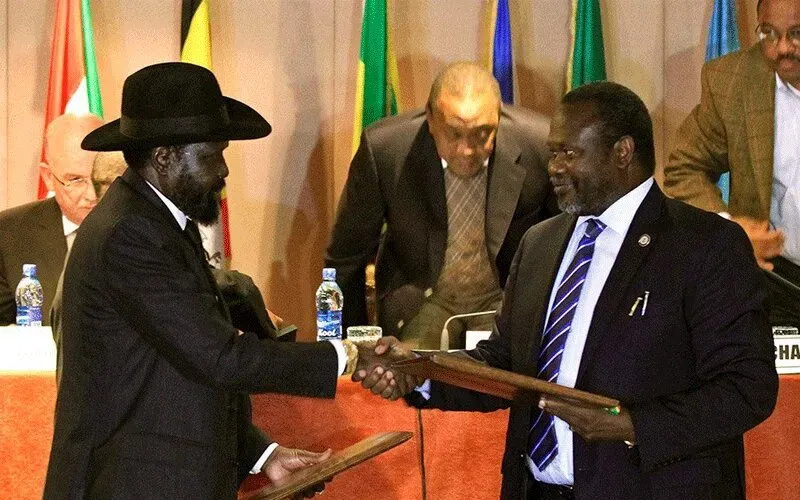The peace agreement signed in September 2018 in Ethiopia’s capital city, Addis Ababa, lays out power sharing between the government side – the Transitional Government of National Unity (TGoNU) – and the main opposition (South Sudanese People’s Liberation Movement/Army-In Opposition – SPLM/A-IO), the South Sudan Opposition Alliance (SSOA), Former Detainees (FD), as well as Other Opposition Parties (OPP).
Last month, the European Union (EU) and Troika Counties said the South Sudanese government should immediately demonstrate significant progress towards implementation of the outstanding elements of R-ARCSS, in accordance with the deadlines set out in the Roadmap.
In their September 6 collective statement, SSCC members present a balance-sheet of the implementation of the peace agreement signed in 2018. They say, “The implementation of the R-ARCS has been generally slow and extremely inconsistent.”
“This is because there is insufficient confidence and trust among the parties to the agreement,” the representatives of church leaders in South Sudan say.
They continue, “There has been persistent deadlock with regards to power sharing within the unified army command and continued armed conflict or violence in many parts of the country. Cattle raids have led to a high number of casualties.”
SSCC members further highlight what the revitalized transitional government of national unity set to achieve during the just ended transitional period, saying it was expected “to address the humanitarian crisis, reform and strengthen effectiveness of the public institutions, deliver transitional justice, draft a permanent constitution, and conduct credible elections within the agreed implementation schedule.”
They regret the fact that “inter and intra-tribal conflict has increased throughout the country due to multiple factors including competition over water and land, competition on livelihood.”
As a way forward, the church leaders in South Sudan say, “The parties should think beyond the implementation of the peace agreement, and lay the groundwork for a good system of governance that prioritizes the needs of citizens.”
“Let the vision of the country be made clear by highlighting the collective and harmonious work of the revitalized transitional government of national unity,” SSCC members say, adding that “South Sudanese deserve committed leaders that have security, welfare and prosperity of the people at heart.”
“Let us all be mindful that the future of the country, marred with uncertainties lies entirely on us,” the representatives of church leaders in South Sudan say in their September 6 statement, and continue, “We are overdue to put ourselves on the right path and learn from our past and present experiences.”








